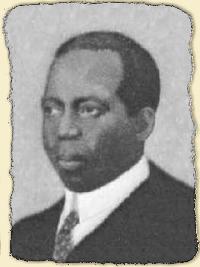
|
|
 [
AJHF |
About |
Home |
News |
Dates |
Artists |
Archive
]
[
AJHF |
About |
Home |
News |
Dates |
Artists |
Archive
]
[ Facebook | Hall of Fame | Downloads | Board | Links | Donations | Memberships ]
Artists
Arkansas Jazz Hall of Fame - 2004 Inductees
[Arkansas Jazz Hall of Fame: 2014 | 2012 | 2010 | 2008 | 2006 | 2004 | 2002 | 2000 | 1998 | 1996 | 1995 | 1994]
Scott Joplin, circa 1867 - 1917
by Jerry Atkins
Scott Joplin was a master composer of classic ragtime music. He was one of the influential American figures in the formation of twentieth century music. Ragtime was a contemporary of the earliest jazz but a separate body of music. It influenced such great composers as Claude Debussy and Igor Stravinsky to write their own interpretations of ragtime music. Both jazz and ragtime are considered American original art forms.
The exact date and place of Joplin's birth is not known with certainly. We know he was born in Texas and probably in the northeast part since the U. S. Census of July 1870 locates him here in Texarkana as a two-year old child. Joplin's frequently quoted date of birth, November 24, 1868, is probably incorrect. Historical documents lead to a date of birth as being between June 1867 and mid-January 1868. Scott's parents were Giles Joplin of North Carolina and Florence Givens Joplin of Kentucky. Scott had three brothers and two sisters. Documentation shows several addresses on Laurel Street in Texarkana. Later Scott and his mother lived at 618 Hazel Street.
Scott attended Orr School, then a two-story structure that is now a one-story building located at 831 Laurel. It is currently used as a Community and Day Care Center.
The family was very musical and Scott was exposed to the piano at an early age. Almost all accountings of his early life mention a German music teacher whose name we now know to be Julius Weiss. We believe he gave Scott the desire to be a classical composer.
Scott departed Texarkana in his late teens (this contradicts earlier undocumented information). His two brothers, Will and Robert, left to travel the Midwest but his third brother, Monroe, lived out his life in Texarkana. Two grand nieces of Scott's still live in Texarkana and another in California. These are the closest living blood descendents of Scott Joplin. Little is known about Scott's sisters, Myrtle and Ossie, except they probably married and lived their lives in Arkansas away from Texarkana. Florence must have lived to see all her children grown. Giles outlived Scott's mother, Florence, by several years. We have found no grave sites for either.
After departing Texarkana, Scott did some playing in Texas and Missouri and traveled to St louis in about 1885. There is evidence that he also lived in Sedalia with some other families bearing the name Joplin. In 1891, newspapers reported he was back in Texarkana with a minstrel group. There was a migration of musicians to Chicago in 1893 for the World's Columbian Exposition. Scott may have played cornet with a band but it was not a sanctioned group for the World's Fair. It was after this that he made the move to Sedalia, which was on the route of the railroad being built between St. Louis and Kansas City. he sang with his popular vocal group known as the Texas Medley Quartette. The group traveled as far as Syracuse, New York, to entertain.
When not traveling he was playing piano in Sedalia, mostly at the Maple Leaf Club. he attended music classes at the George R. Smith College and learned to notate music and acquired other composition skills.
All of the Joplins were living at the time of the publication of the famous MAPLE LEAF RAG in 1899. It has been stated that over a million copies were sold over a long period of time. It allowed him liberation from the role of being just a saloon piano player.
He moved to St. Louis in 1901 with his new wife, Belle Hayden. In 1903 he filed a copyright application (never approved) for an opera titled "A Guest of Honor." A planned tour performing it failed and the music has never been recovered.
Many of Joplin's most important rags were published in those St. Louis years. After his marriage to Belle came to an end, Scott returned to Arkansas in 1904 and married Freddie Alexander in Little Rock. Unfortunately, his new wife died of pneumonia ten weeks later. After the funeral, Scott left Sedalia never to return.
There is strong evidence that he was working on his new opera TREEMONISHA with Freddie in mind. Scott had parted company with his long Sedalia publisher, John Start and went to New York to try to get help from many important music people. Fortunatley, there was a renewal of his friendship with Stark, who published many new Joplin rags. Scott even gave the opera score to Irving Berlin who kept it but eventually rejected it.
Even though noe of Scott's music was written while living in Texarkana, he never forgot about his early musical heritage.His heart and soul still remained in the Red River Valley and the dense forests of Northeast Texas and Southwest Arkansas. He stated that the setting of the opera was about 10 miles north of Texarkana. one historian believes that his second wife from Arkansas was his inspiration for the main character, TREEMONISHA. Its story takes place in 1884 and relates to how educatio can overcome racial inequality.
Despite many efforts, there were only some fragmented performances of portions of the opera. Joplin never saw a complete staged performance. Disappointment and frustration bagan to take its toll. he spent some time in a hospital from long developing physical problems. He was transferred to a mental institution where he died on April 1, 1917.
Reports of a large funeral procession are pure fiction. he was almost a forgotten man when he died. His burial in an unmarked grave was finally acknowleldged by the American Society of Composers, Authors and Publishers in October 1974. A brief service at the grave site in St. Michael's Cemetery in Astoria, Queens was held and the new bronze marker reads simply "Scott Joplin, American Composer."
1971 and 1972 were the revival years for Scott and his ragtime music. Articles appeared in important music magazines and he was acclaimed a "Genius Rediscovered." Stories of his life appeared on television, movies and many record companies were quick to record his music. An Oscar winning movie, "The Sting," certainly capitalized on the use of his music that is now mostly in the public domain. Late in 1971, the Lincoln Center Music Library performed some of his piano music. The first complete performance of TREEMONISHA took place in Atlanta in January 1972. Later it was performed in Houston, on Broadway, and at Wolf Trap, America's National Park for the Performing Arts near Washington, D.C.
Scott Joplin was posthumously awarded "A Pulitzer Prize Special Award" for his contributions to America Music on May 3, 1976. A mural honoring this great American Composer and the "King of Ragtime" may be seen at the corner of 3rd and Main Streets in Downtown Texarkana.
[Arkansas Jazz Hall of Fame: 2014 | 2012 | 2010 | 2008 | 2006 | 2004 | 2002 | 2000 | 1998 | 1996 | 1995 | 1994]
Arkansas Jazz Heritage Foundation · PO Box 251187 · Little Rock, AR 72225-1187 US · info@arjazz.org
Copyright © Arkansas Jazz Heritage Foundation. All rights reserved.
Information on AJHF and Jazz:
Comments on web site:
About this site. We appreciate those who have helped create this site.
URL: https://www.arjazz.org